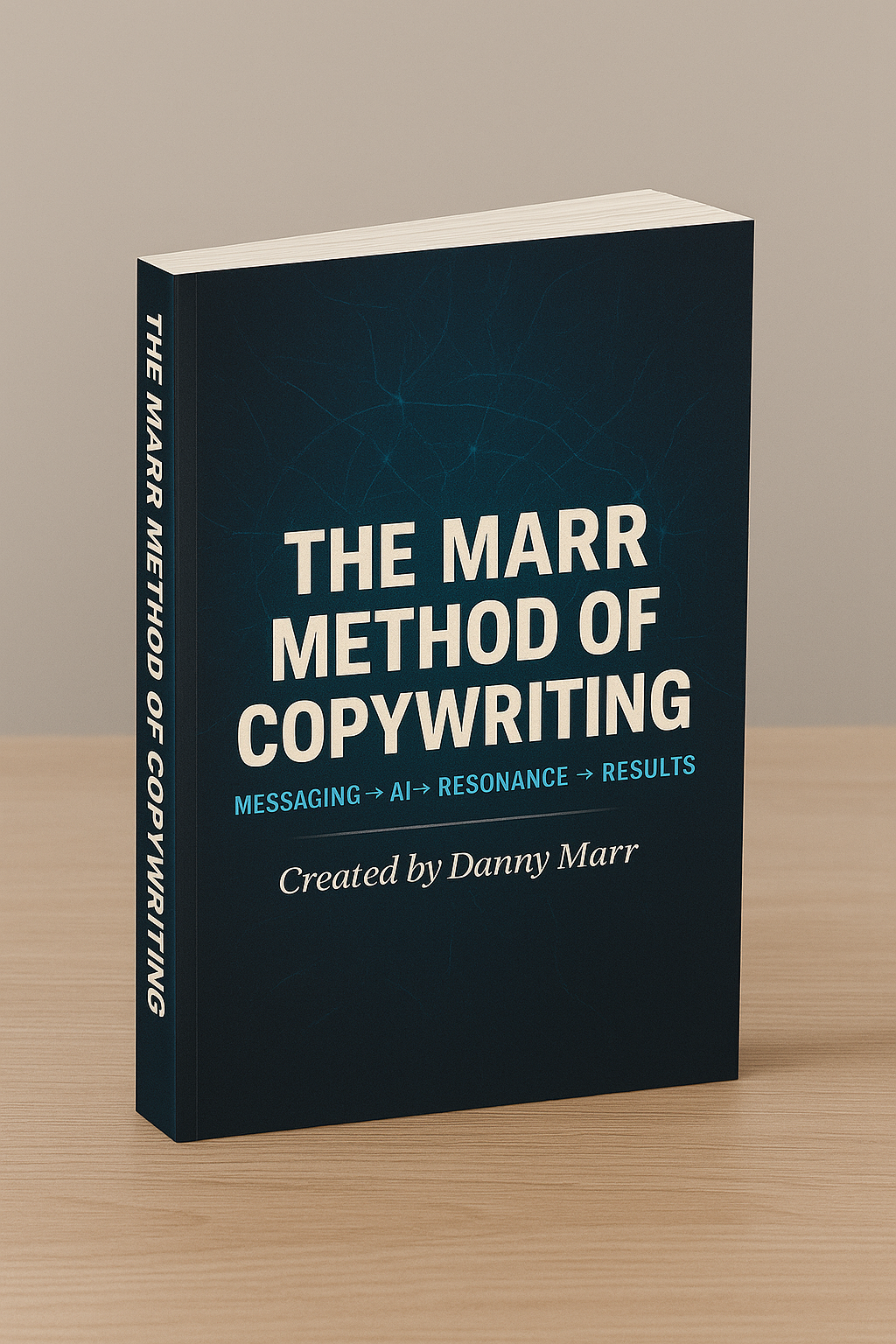
Introduction to Mindfulness in Writing
Mindfulness has become a valuable tool for enhancing creativity and focus, and its application to writing has shown remarkable results.
At its core, mindfulness involves being fully present in the moment, aware of your thoughts and surroundings without judgment.
When applied to writing, this practice encourages a deeper connection to the creative process, allowing writers to engage more fully with their ideas and intentions.
In the context of persuasive writing, mindfulness helps bridge the gap between thought and expression.
By fostering an intentional and reflective mindset, writers can identify their goals more clearly and communicate them effectively.
Mindful writing is not about forcing inspiration or overthinking each word; instead, it’s about approaching the process with curiosity and patience, embracing the flow of ideas without becoming overwhelmed.
For writers, distractions are often a major obstacle.
From digital interruptions to internal self-doubt, these challenges can make it difficult to focus on the task at hand.
Mindfulness helps to minimize these distractions by grounding the writer in the present, enabling them to approach their work with greater concentration and purpose.
This level of engagement not only leads to more persuasive and impactful writing but also makes the process itself more fulfilling.
In addition to enhancing focus, mindfulness brings an element of intentionality to writing.
When writers take the time to center themselves before diving into their work, they can better assess the tone, structure, and message they want to convey.
This awareness leads to writing that feels authentic and well crafted, qualities that are essential for connecting with an audience.
Another advantage of mindfulness in writing is its ability to foster emotional resilience.
Writing often involves grappling with complex topics, which can stir up self-doubt or negative emotions.
By practicing mindfulness, writers learn to acknowledge these feelings without letting them take control.
This emotional balance allows them to stay productive and engaged, even when tackling challenging subjects.
Mindfulness also encourages a sense of curiosity and openness, which can be especially useful for writers looking to experiment with new styles or ideas.
Instead of rushing through the process or clinging to perfectionism, mindful writers give themselves permission to explore and make mistakes.
This creates space for creative breakthroughs that might otherwise be missed.
Ultimately, integrating mindfulness into writing is about more than improving output; it’s about transforming the way writers relate to their craft.
By embracing the present moment and cultivating a thoughtful, intentional approach, writers can unlock new levels of creativity and insight.
This shift not only enhances their work but also deepens their connection to the art of writing itself.
Improving Focus with Mindfulness

In today’s hectic world, maintaining focus can be one of the most challenging aspects of writing.
This is especially true for those working on persuasive pieces, where clarity and precision are essential.
Mindfulness offers practical tools to improve concentration, allowing writers to engage more deeply with their work.
By adopting mindful techniques, writers can train their minds to stay present, which is vital for crafting compelling and cohesive content.
A foundational practice for enhancing focus is mindful breathing.
Taking a few moments to focus on the rhythm of your breath before starting a writing session can calm a restless mind and create a sense of mental clarity.
This simple yet effective exercise helps writers reduce distractions, whether they come from external sources like technology or internal sources like wandering thoughts.
When the mind is centered, it becomes easier to prioritize tasks and structure ideas logically.
Another effective mindfulness strategy is setting clear intentions before beginning to write.
This involves pausing to identify the purpose of the piece and the audience it aims to reach.
By taking this step, writers can stay aligned with their objectives and avoid drifting off course.
This intentional approach also allows for better time management, as it keeps the focus on key elements rather than unnecessary details.
Journaling can also play a significant role in improving focus.
This practice gives writers a space to process thoughts and emotions, clearing mental clutter that might interfere with their ability to concentrate.
For example, dedicating five to ten minutes at the start of a writing session to jotting down worries or scattered ideas can help create a mental “reset,” leaving the mind more open and prepared for the task at hand.
The process is not about creating polished content but rather about freeing up mental bandwidth for the work ahead.
Additionally, mindfulness can aid writers in building healthier habits around managing distractions.
It’s not uncommon to feel tempted by notifications or to procrastinate when a task feels overwhelming.
Mindfulness trains the brain to acknowledge these impulses without acting on them.
For instance, if a writer feels the urge to check their phone, they can practice pausing to take a deep breath and redirect their focus to the task at hand.
Over time, this practice strengthens the ability to resist distractions, leading to greater productivity.
Lastly, mindful movement, such as a short walk or a few minutes of stretching, can also help boost focus during longer writing sessions.
Physical activity reenergizes the body and mind, making it easier to return to work with renewed concentration.
Writers who incorporate these mindful practices into their routines often find themselves better equipped to maintain focus and achieve their creative goals.
Clarity Through Mindfulness Practices

Mindfulness offers valuable tools for developing clarity in writing, especially when tackling persuasive content.
Techniques such as expressive writing allow writers to articulate thoughts and emotions without filtering or self-censorship.
By creating space for uncensored reflection, writers can better identify and refine their core message.
A practical way to harness this clarity is through freewriting.
Setting a timer for five to ten minutes and writing continuously; without concern for grammar, punctuation, or structure, helps uncover unfiltered thoughts.
This technique not only clears mental blocks but also reveals underlying themes or arguments that might otherwise remain buried.
For instance, a writer working on a persuasive piece about environmental conservation might uncover a personal story or angle during freewriting that enhances the emotional depth of their message.
Mindfulness also encourages simplifying complex ideas, which is essential in persuasive writing.
A cluttered narrative or overly complicated explanation can dilute the intended message.
Mindful copywriting emphasizes breaking down arguments into clear, concise points that are easier for the audience to grasp.
To achieve this, writers can practice asking themselves, “What’s the most essential takeaway I want readers to remember?”
Answering this question encourages focus on key ideas, allowing unnecessary details to fall away.
Visualization is another mindfulness based tool that can bring clarity to the writing process.
By imagining the ideal outcome of their work, writers can develop a more focused approach.
For example, picturing the audience’s reaction to a completed piece can help a writer tailor their tone and language to align with the intended impact.
This practice serves as a mental anchor, keeping the writer’s purpose at the forefront as they develop their content.
Revisiting drafts with a mindful mindset also promotes clarity.
After completing an initial draft, pausing to step away from the work for a brief moment allows the writer to return with fresh eyes.
This space often highlights areas that need refinement or clarification.
Writers who take time to mindfully read through their drafts; observing where sentences feel unclear or where ideas could flow more logically, create stronger, more polished pieces.
When applying mindfulness to persuasive writing, clarity becomes a natural outcome of intentional focus and exploration.
Techniques like expressive writing, freewriting, and visualization not only enhance the writer’s ability to communicate effectively but also ensure their work resonates with their audience.
Mindfulness and Emotional Awareness

Mindfulness in writing allows authors to explore and embrace their emotional landscape, which can significantly enhance the depth and impact of their work.
By fostering a practice of awareness and acceptance, writers can better understand how their emotions influence their creative process.
This awareness is particularly important in persuasive writing, where authentic emotional expression often forms the bridge between the writer and their audience.
When writers become more attuned to their feelings, they can channel those emotions into their work in ways that resonate with readers.
For example, if a writer feels passionate about a social issue, mindfulness can help them reflect on those feelings without judgment, allowing for more genuine and relatable content.
This approach ensures that emotional authenticity becomes a strength rather than a vulnerability in the writing process.
Research supports the value of acknowledging emotions through writing.
Suppressing emotions can create barriers to creativity and connection, while externalizing those feelings through mindful practices encourages a healthier flow of ideas.
Externalizing these emotions through writing can address this issue.
By giving space to these emotions, writers gain the clarity and confidence needed to articulate their message with greater impact.
Practices such as reflective journaling or expressive writing are excellent tools for exploring emotional awareness.
These exercises provide a structured way to process complex feelings, often revealing insights that deepen the writer’s understanding of themselves and their topic.
For instance, a writer grappling with frustration over environmental challenges might journal about those emotions, uncovering stories or perspectives that bring their argument to life.
Mindfulness also helps writers cultivate compassion, both for themselves and their audience.
Recognizing and accepting their emotional state, rather than trying to suppress or ignore it, fosters self-compassion.
This practice, in turn, encourages a more empathetic approach to writing.
Writers who are aware of their own emotions are often better equipped to anticipate and address the emotional needs of their readers, which is a critical skill in persuasive communication.
Another way mindfulness supports emotional awareness is by creating space for writers to observe their reactions during the writing process.
For example, when faced with a challenging subject or moment of self-doubt, mindfulness techniques like deep breathing or a brief pause can help writers manage their response.
This practice allows them to move forward with a clearer head and steadier focus.
By prioritizing emotional awareness, writers can connect more meaningfully with their readers, crafting messages that are not only persuasive but also deeply human.
Mindfulness Techniques for Writers

Mindful practices can be seamlessly integrated into a writer’s routine to enhance focus, creativity, and emotional clarity.
One of the simplest and most effective techniques is mindful breathing.
By taking a few moments to pay attention to the rhythm of their breath, writers can ground themselves and create a calm mental state before beginning their work.
This practice reduces mental noise, allowing for a clearer connection to ideas and intentions.
Meditation is another powerful tool that writers can use to cultivate mindfulness.
Setting aside a short amount of time, even five to ten minutes, for meditation can help calm the mind and improve overall concentration.
This quiet time fosters a sense of mental clarity, which is particularly useful when working on complex or persuasive projects.
Writers may choose to focus on a specific mantra or simply observe their thoughts without judgment, creating space for fresh perspectives to emerge.
Writing therapy, often referred to as expressive or therapeutic writing, is another valuable mindfulness practice.
This form of writing helps individuals process emotions and thoughts by putting them into words.
Writers who engage in this practice often find it easier to overcome creative blocks, as it allows them to address internal concerns that might be hindering their progress.
Body awareness exercises, such as mindful movement or stretching, can also support a writer’s focus and creativity.
Engaging in a brief walk or a series of stretches helps release physical tension, which can accumulate during long writing sessions.
This physical reset not only reenergizes the body but also clears the mind, enabling a smoother return to the writing process.
Another approach is to create a mindfulness based pre-writing ritual.
For instance, some writers find it helpful to light a candle, play calming music, or set a timer for a brief period of deep breathing before beginning their work.
These small, intentional acts signal to the mind that it’s time to transition into a focused and reflective state.
Visualization is yet another effective technique, where writers imagine their ideal outcome before starting.
By picturing how their audience will respond to the finished piece or envisioning the flow of their ideas, writers can align themselves with their goals and develop a sense of purpose that carries through their work.
Each of these techniques offers a way for writers to cultivate mindfulness, promoting a more intentional and rewarding creative process.
Personal Growth Through Mindful Writing

Mindful writing serves as a powerful avenue for self-discovery and personal growth, offering writers the opportunity to better understand their inner world.
By engaging in this reflective practice, writers create space to explore their thoughts, emotions, and experiences with greater awareness.
This process often leads to a deeper connection with their values and beliefs, which can enrich both their creative work and personal lives.
One of the key benefits of mindful writing is its ability to foster emotional insight.
When writers take the time to observe and reflect on their feelings without judgment, they can uncover patterns or truths that might otherwise remain hidden.
This deeper understanding can lead to personal breakthroughs, whether it’s gaining clarity on a challenging decision or resolving lingering inner conflicts.
By processing emotions through writing, individuals often experience a greater sense of relief and balance, enhancing their overall well being.
Reflective practices like journaling provide a practical way to integrate mindfulness into writing routines.
Through journaling, writers can express thoughts and feelings in an unfiltered, honest way, which encourages self-exploration.
For instance, setting aside just ten minutes a day to write about recent challenges or successes can reveal personal growth over time.
These insights often extend beyond the page, influencing how writers approach not only their craft but also their daily lives.
Another aspect of personal growth tied to mindful writing is the development of resilience.
Writing about difficult emotions or experiences helps build the capacity to face challenges with greater confidence.
This practice doesn’t eliminate difficulties but equips writers with the tools to navigate them more thoughtfully.
By revisiting their writing, individuals can also recognize how far they’ve come, which reinforces a sense of progress and achievement.
Mindful writing encourages writers to approach their thoughts with curiosity rather than criticism, nurturing self-compassion.
This mindset is particularly transformative for those who struggle with perfectionism or fear of failure.
Instead of fixating on perceived shortcomings, writers learn to view their work; and themselves, as a work in progress.
Over time, this gentle and forgiving approach fosters a stronger sense of self-worth.
Ultimately, the reflective nature of mindful writing not only enhances creativity but also encourages deeper personal growth.
Writers who engage in this practice often find themselves more grounded, self-aware, and equipped to navigate life’s complexities.
This growth extends beyond the act of writing, becoming an integral part of how they interact with the world around them.
💡 Quick question before you go:
Are you using AI in your copywriting — or letting it use you?
Take the 2-minute quiz to uncover your Copywriting + AI Style, get your personalized analysis, and receive a free copy of The Marr Method of Copywriting.
 👉 Take the Quiz — Unlock Your Style
👉 Take the Quiz — Unlock Your Style
